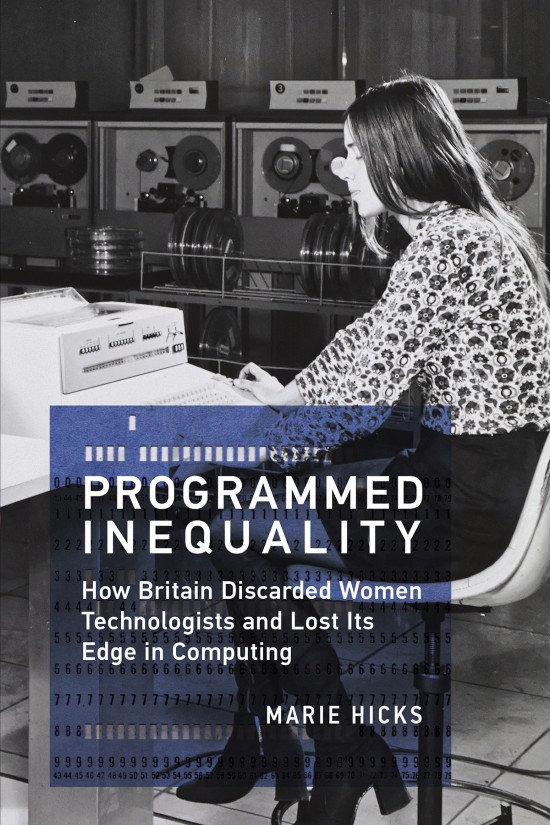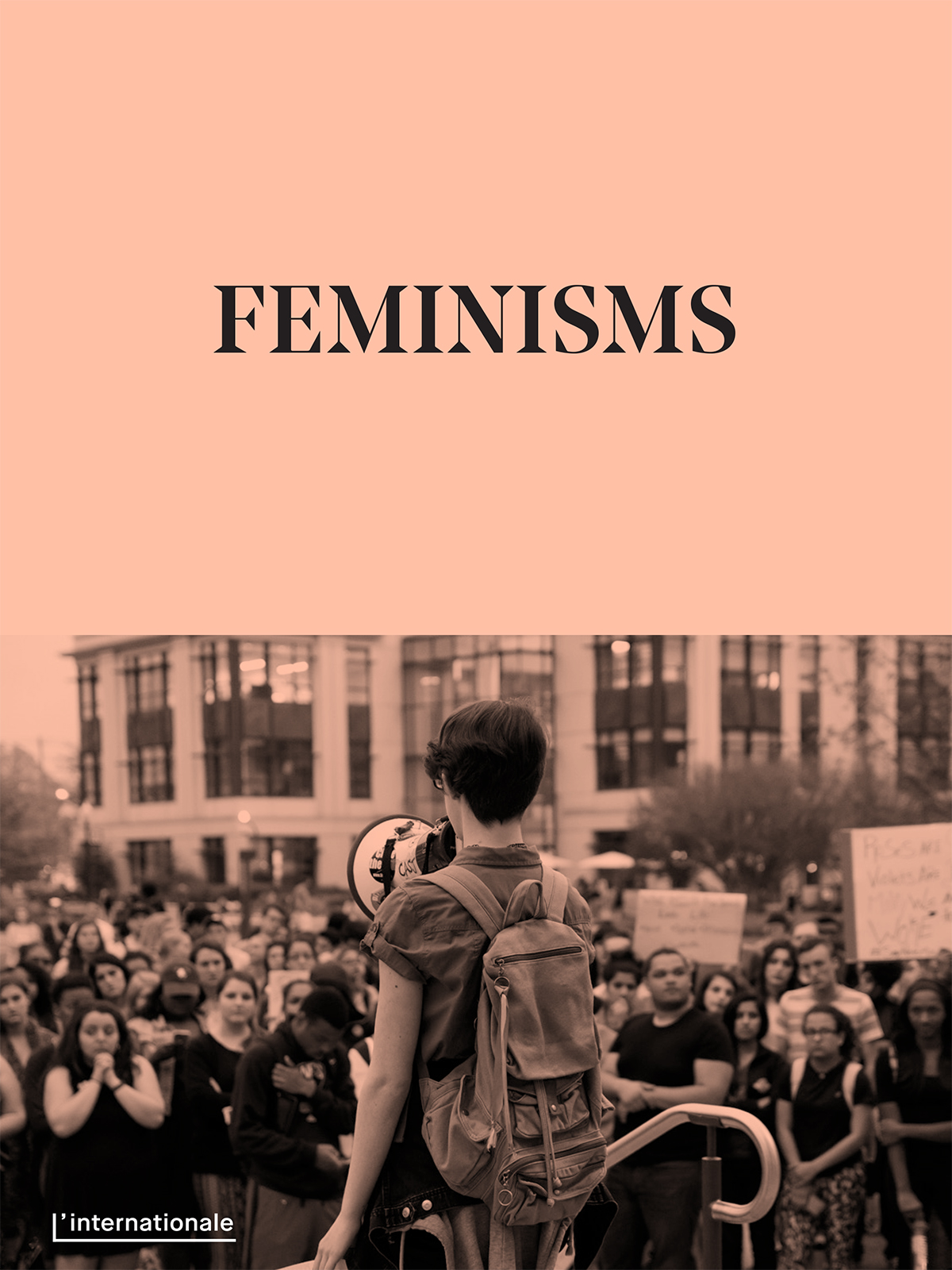Marie Hicks: Programmed Inequality: How Britain Discarded Women Technologists and Lost Its Edge in Computing (2017)
Filed under book | Tags: · computing, history of computing, history of technology, technology, united kingdom, women

“How Britain lost its early dominance in computing by systematically discriminating against its most qualified workers: women.
In 1944, Britain led the world in electronic computing. By 1974, the British computer industry was all but extinct. What happened in the intervening thirty years holds lessons for all postindustrial superpowers. As Britain struggled to use technology to retain its global power, the nation’s inability to manage its technical labor force hobbled its transition into the information age.
In Programmed Inequality, Marie Hicks explores the story of labor feminization and gendered technocracy that undercut British efforts to computerize. That failure sprang from the government’s systematic neglect of its largest trained technical workforce simply because they were women. Women were a hidden engine of growth in high technology from World War II to the 1960s. As computing experienced a gender flip, becoming male-identified in the 1960s and 1970s, labor problems grew into structural ones and gender discrimination caused the nation’s largest computer user—the civil service and sprawling public sector—to make decisions that were disastrous for the British computer industry and the nation as a whole.
Drawing on recently opened government files, personal interviews, and the archives of major British computer companies, Programmed Inequality takes aim at the fiction of technological meritocracy. Hicks explains why, even today, possessing technical skill is not enough to ensure that women will rise to the top in science and technology fields. Programmed Inequality shows how the disappearance of women from the field had grave macroeconomic consequences for Britain, and why the United States risks repeating those errors in the twenty-first century.”
Publisher MIT Press, 2017
ISBN 9780262035545, 0262035545
x+342 pages
Reviews: Ksenia Tatarchenko (British Journal for the History of Science, 2017), Janet Abbate (IEEE Annals of the History of Computing, 2017), Lianne Gutcher (The National, 2017), Dominic Lenton (E&T, 2018), John Gilbey (Times Higher Education), Christophe J. Phillips (Isis, 2018), Mark J. Crowley (History, 2018), Megan Finn (Information & Culture, 2018).
HTML, PDF (removed on 2018-10-26 upon request from publisher)
Comment (0)Apparatus, 6: Women at the Editing Table: Revising Soviet Film History of the 1920s and 1930s (2018)
Filed under journal | Tags: · avant-garde, cinema, editing, film, film history, montage, women

“The construction of the historical narrative of film editing has the cultural invisibility of women and of collaborators embedded within it. Film histories regularly spend whole chapters describing editing as a significant revolution in the medium. However, while the names of “great directors” are evoked in these discussions, the names of editors are not mentioned: “…for the most part, the women who cut film in the silent era remained unacknowledged in film credits or the trade press. Their work was considered to be merely technical rather than creative.” […]
Collectively, the articles in this issue are shifting understanding of the editor’s work from ‘merely’ technical or ‘just helping’, which is a gendered erasure of women’s work, to understanding it as expert collaboration in filmmaking. In other words, creative work. Why is this important? Because by obscuring the creativity of the work of the hands of women who watched, sorted, cut and pasted frames of film together we obscure the women themselves.” (from Editorial)
Texts by Karen Pearlman, John MacKay, and John Sutton, Lilya Kaganovsky, Natalie Ryabchikova, Nikolai Izvolov, Adelheid Heftberger, and Esfir Shub.
Edited by Karen Pearlman and Adelheid Heftberger
Publisher Apparatus, Berlin, August 2018
Open access
ISSN 2365-7758
L’Internationale (ed.): Feminisms (2018)
Filed under book | Tags: · feminism, museum, women

“The importance of women’s rights have sprung up in movements across the globe in the past few years, exacerbated by increasing social, environmental, technological and political polarities.
This publication examines how women, or those who identify as female have been addressing not only inequalities – in reproductive rights, sexual rights, and in the right to equal pay – but also how plural feminisms have been and are being consistently re-thought, and how art museums can work with and respond to issues surrounding women’s rights.
Feminisms play a crucial role in what L’Internationale does – not only as a way to live and work with women, but as a framework for continually re-assessing the institution’s position for its publics. What is prevalent in this publication is a need to ask how we deal with emotion – not only as individuals, but as institutions and within bureaucracies. We hope that this publication can serve to raise discussions and to develop institutional practices that take into account our different publics, through a feminist lens.”
With texts by Sarah Werkmeister, María Eugenia Rodríguez Palop, Ewa Majewska, Nataša Petrešin-Bachelez, María Pia López, Sarp Özer, Mojca Kumerdej, Yayo Herrero, Fatma Arikoglu, Sarah Browne, The Otolith Group and Annie Fletcher.
Publisher L’Internationale Online, 2018
Creative Commons BY-NC-SA License
ISBN 9789491564079
186 pages

